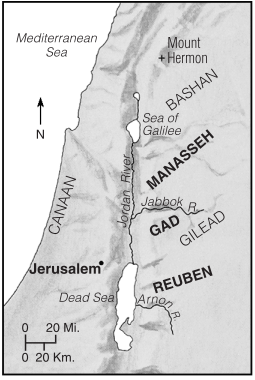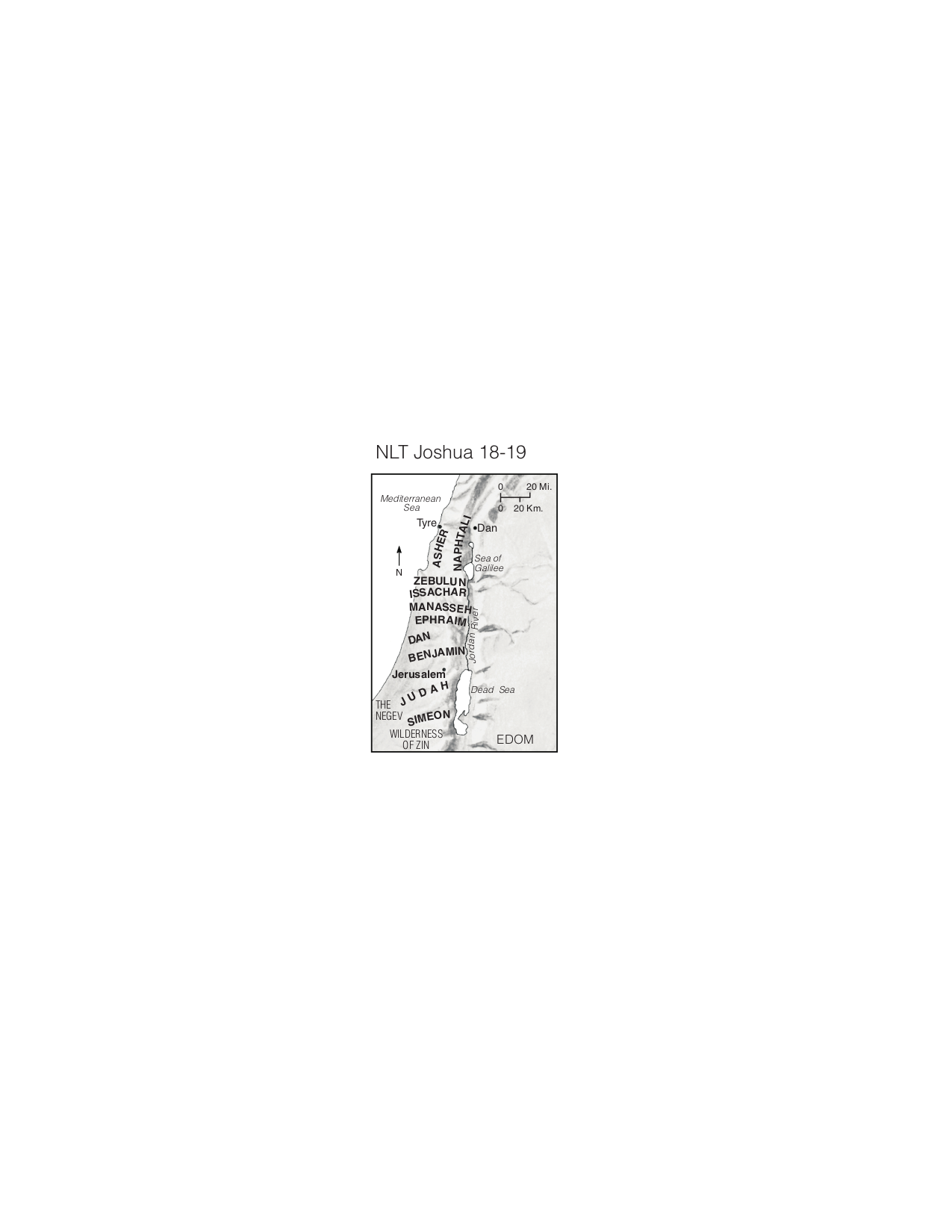Open Bible Data Home About News OET Key
A B C D E F G H I J K L M N O P Q R S T U V W XY Z
Tyndale Open Bible Dictionary
Intro ← Index → ©
ALLOTMENT OF THE LAND
Assignment of large territories of the Promised Land of Canaan to the 12 tribes of Israel following the Conquest. The specific territory in Canaan to be occupied by each of the 12 tribes of Israel was not left to their own initiative. They were not to possess whatever land they could wrest for themselves by military conquest. Rather, they were ordered to fight unitedly and then divide the total area by casting lots—a method analogous to drawing straws or tossing a coin. The same method was used at other times in Bible history as a means of determining the divine will. Besides avoiding arguments or intertribal fighting, the procedure had theological significance. The outcome was placed solely in God’s hands (see Prv 16:33). The Lord thereby reminded his people that the land was his to apportion as he saw fit. In Numbers 26:52-56 the Lord’s order for such a lottery was given (see also Nm 34). In Joshua chapters 13–19 the allotment was planned and carried out at Shiloh (19:51).
Assignment of the southern part of Transjordan to two and a half tribes had already been made by Moses (Nm 32). West of the Jordan the remaining nine and a half tribes received portions by lot after their faithful leader, Caleb, got his choice of the region around Hebron. The order in which the tribes were named somewhat follows their relative locations. The territory of the major southern tribe, Judah, included Caleb’s lands and extended north to the yet unconquered Jerusalem. Next came the large central portions of the tribes of Ephraim and Manasseh, the patriarch Joseph’s sons. Benjamin’s area lay between Judah and Ephraim. Then Simeon’s territory was named, lying in southern Judah. The remaining tribes listed in Joshua 19, with one exception, received territorial inheritance north of Manasseh. They were Zebulun, Issachar, Asher, Naphtali, and Dan. Dan’s tribe drew an allotment west of Judah, but because the Philistines held the coastline, Dan’s tribe migrated north and renamed the captured city of Lachish for their tribal ancestor, Dan (see Jgs 18). From then on, “from Dan to Beersheba” meant all of Israel.
Such a method of assigning real estate seems strange to present-day economics, yet with respect to the customs of that time, it made theological sense. Kings and emperors in the ancient Near East were considered sovereign representatives of their gods. They held the ownership right to all lands and gave portions to whomever they pleased. From the time of the exodus, Israel was a theocracy. God was king. No human authority was sovereign or possessed sovereign property rights. God was the Israelites’ sole benefactor.
See also Conquest and Allotment of the Land; Israel, History of; Joshua, Book of; Chronology of the Bible (Old Testament).

The Tribes East of the Jordan
Joshua assigned territory to the tribes of Reuben, Gad, and the half-tribe of Manasseh on the east side of the Jordan. These tribes had asked Moses for land there because it was such wonderful livestock country (Nm 32:1-5).

The Tribes West of the Jordan
Judah, Ephraim, and the other half-tribe of Manasseh were the first tribes to receive land west of the Jordan. The remaining seven tribes—Benjamin, Zebulun, Issachar, Asher, Naphtali, Simeon, and Dan—received their inheritance later because they were slow to conquer and possess the land allotted to them.

